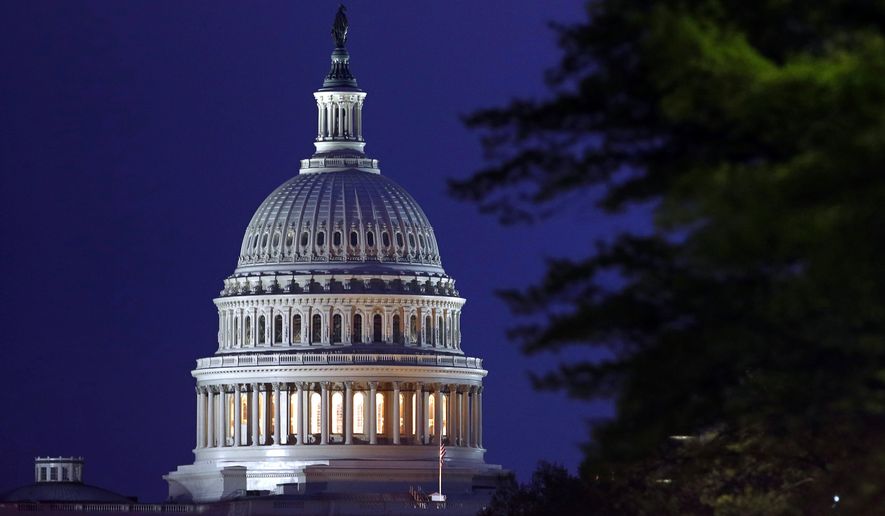The White House and bipartisan leaders on Capitol Hill are nearing a two-year deal to raise the spending caps, paving the way for a cleaner spending process but doing so at the expense of taxpayers.
Senate Majority Leader Mitch McConnell said Tuesday he was optimistic a deal could be reached by the end of the day. That didn’t materialize, but the sides still expressed enthusiasm that something will get done this week, setting the stage for Congress to begin to tackle the 2020 spending bills in earnest.
“It seems to me without exception, everyone would like to,” Mr. McConnell said.
He, House Speaker Nancy Pelosi, Senate Minority Leader Charles E. Schumer and House Minority Leader Kevin McCarthy had two meetings Tuesday, joined by acting White House Chief of Staff Mick Mulvaney and Treasury Secretary Steven Mnuchin.
After an afternoon sessions the two Democrats, Mrs. Pelosi and Mr. Schumer, said they’re still haggling over whether domestic spending should get as much of a boost as defense spending.
“We continue to insist that there be parity in increases between defense and non-defense, and that we adequately fund critical domestic priorities, including the census and our commitments to our heroic veterans,” they said in a joint statement.
They called the conversations “productive” and said more meetings will be coming.
A two-year deal would set overall discretionary spending limits for fiscal year 2020, which begins Oct. 1, and then for fiscal year 2021, which begins a year later.
Congress is still operating under the spending limits set by the 2011 debt deal struck by then-President Obama and then-House Speaker John A. Boehner. That deal called for strict limits to discretionary spending for a decade, unless Congress came up with cuts elsewhere.
Capitol Hill failed to find those other cuts, meaning that lawmakers face the choice of either busting the caps or else facing automatic “sequester” cuts.
Congress has agreed to two-year deals the last four years to alter the caps to allow for higher spending.
For 2019, that meant that defense spending was allowed to rise to $647 billion, and domestic discretionary spending was set at $597 billion. But without a new caps-raising deal, those numbers will be slashed to $576 billion in defense spending next year, and $542 billion in domestic spending.
Mr. McConnell said he’s convinced President Trump will bless whatever agreement emerges from the talks.
“A negotiated agreement with the House Democrats is the best of three alternatives,” he said, laying out a shutdown showdown or a continuing resolution to keep government funded at 2019 levels as the other worse paths.
Mr. Schumer agreed the negotiations have been “serious,” but said he wants the president to give an overt blessing to whatever deal the leaders make.
That could head off the kinds of hiccups such as last year’s shutdown showdown, where the White House signaled Mr. Trump was on board a stopgap bill that didn’t include border wall money — only to see the president reverse and refuse say he would refuse the bill.
“We need the president to publicly sign off on whatever we agree to,” Mr. Schumer said.
• Stephen Dinan can be reached at sdinan@washingtontimes.com.




Please read our comment policy before commenting.